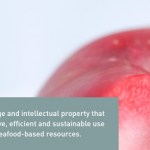GMO
Over the past 16 years, vast plantings of transgenic crops producing insecticidal proteins from the bacterium Bacillus thuringiensis (Bt) have helped to control several major insect pests and reduce the need for insecticide sprays. Today, a report in Nature shows that planting of BT crops is also associated with an increase of ladybirds, lacewings and spiders, which are natural enemies of certain pests that harm the crop.
On the basis of data collected from 1990 to 2010 at 36 sites in six provinces of northern China, the authors show a …
Why labeling of GMOs is actually bad for people and the environment « The Berkeley Blog.
This is a very balanced and knowledge-based post by the widely respected agricultural economist, David Zilberman. Thankfully, he brings some science to this hot topic. It is an important read for everyone in California who votes as we will soon have an initiative on GMO Labeling on our ballot.
One small point. Professor Zilberman indicates "Now, what about emergence of resistance to GMOs? '
Actually, the resistance is to the herbicide that is sprayed on the GMO. The more people plant…
MT The debate on genetically engineered crops (the so-called "GMOs") has begun to grow up. Anti-GMO protests are fizzling.
Why?
Some consumers are embracing an emerging "geek consciousness" – a science-friendly approach that rejects unfounded attacks on basic and applied science and that emphasize knowledge-based agriculture instead of faith-based agriculture.
Also, genetic modification is no longer new. GM crops have been grown commercially around the world for more than a decade, and have been eaten by millions with no harm to human health or the environment. Scary health effects…
Listen to an informative interview on NPR with University of California, Berkeley geneticist Peggy Lemaux regarding the California initiative on Food labeling.
"If youre looking to know whats in your food, well theres a lot of stuff in your food, and theres already a lot of stuff on the label," says Lemeaux. "And a lot of people already dont read the label."
For more information, check out her science-based website here.
It is a great site, which answers just about any question concerning genetically engineered crops.
Just read some of the comments on Amy Harmon's #GMO labeling story from Friday's NYT. Guess people care about this topic.
Here are some excerpts:
"Unless you are foraging, eating wild-berries, game, etc... then you are consuming GMO food. There is no logical definition of #GMO food"
"Conservatives deny data on global warming; Liberals deny data on #GMO safety Each side discards reason when it doesn't suit their politics"
"The FDA should require stringent testing of GMO products and label only those found to be harmful"
"You think you have pesticides being applied now? Wait until the demise of…
A paper in this week's issue of Nature and a commentary on Revkin's DotEarth blog reinforces the argument that a hybrid path in agriculture -- incorporating both conventional and organic production practices -- gives the best chance of feeding some 9 billion people by midcentury in an ecologically-based manner.
The thoughtful and comprehensive study compares yields in organic and conventional systems and addresses the criticisms of an earlier study by Badgley et al (for problems with the earlier study, see the supplementary discussion in Seufert et al).
The organic agriculture movement has…
Last fall, a bizarre but interesting paper was published in Nature Cell Research:
Exogenous plant MIR168a specifically targets mammalian LDLRAP1: evidence of cross-kingdom regulation by microRNA
(subsequent correction after they duplicated images in their figures LOL!!!! Nature/Science, you so crazy!)
What they suggest, is that when humans eat Oryza sativa (Asian rice), a microRNA highly expressed in that rice is secreted into vesicles during digestion, which are absorbed into the human bloodstream, and taken up by liver cells, where the rice microRNA can then have a physiological effect on…
Consumers are asking us many questions about biotech seeds and traits. They want to know why some farmers may choose to use them and what the long-term implications are not only for our health but also for the farming/ranching industry.
All of the challenges and issues facing the agriculture industry are very complex and multifaceted. The issue of using biotech seeds and traits is no different. U.S. Farmers & Ranchers Alliance (USFRA) has encouraged farmers and ranchers to share their experiences and provide some insight into why they choose - or choose not - to use biotech seeds.
They…
This is why we need science blogs like Tomorrows Table, Biofortified, GMO Pundit, and James and the Giant Corn**.
"I'm sick of being treated like a dumb Mum who doesn't understand the science. As far as I'm concerned, my family's health is too important. GM wheat is not safe, and if the Government can't protect the safety of my family, then I will."
Canberra Greens MLA Shane Rattenbury this morning condoned the action on ABC Radio, citing Greenpeace's long-held opposition to GM crops, and saying that sometimes the end justified the means.
Ah well, its just plants, right? No big deal, 'the…
This week, the G20 Agriculture Ministers gathered for their first-ever meeting to discuss potential measures to address price volatility and record high food prices. The key to any long-term solution is acknowledging that we need to empower the very people whose lives are most affected by food shortages. Three-quarters of the world's poorest people get their food and income by farming small plots of land. The potential of small farmers for getting us out of this and future food crises cannot be overstated.
Today, we find that millions of lives depend upon the extent to which agricultural…
The journalist Marc Gunther recently posted a thoughtful article discussing public perceptions of the role of organic agriculture in a future sustainable food system.
He found that many consumers believe that there are only two ways to produce food:
"The first can be described, depending upon who's talking, as big, fast, modern, conventional, industrial, intensive, chemical, genetically-modified, processed and global. It's the system that delivers most of the food that most Americans eat."
"The second is described as organic, sustainable, local, small-scale, family-owned, natural, agro-…
Guest Post: Dr. Robert L. Thompson is a senior fellow for The Chicago Council on Global Affairs and professor emeritus at the University of Illinois at Urbana-Champaign
Over the past few months, we've watched as governments have been overthrown in Tunisia and Egypt, as governments across North Africa and the Middle East promised reforms, some even handing out cash to pacify angry citizens, and as demonstrations in Libya intensified into outright civil war. Although a number of issues have come to a head, one constant across countries is the rocketing prices of basic commodities, and the…
I walked into the gleaming 'Orchard in a box", a closed greenhouse where no pollen can flow outside. The apple was red, red, red inside and out and I wanted it. But because I was in New Zealand, where experimenting with genetically engineered food is highly regulated, tasting was banned.
How was this forbidden fruit created? By overexpression of an apple transcription factor in the white-fleshed, tasty Royal Gala variety. The transcription factor was isolated from an apple that has both red flesh and red skin, that occurs in Central Asia. However, these apples are normally quite bitter…
Every Spring, you can count on a handful of posts here at ERV on allergies. Ive got em. I hate em.
But I recognize that in many ways, Im 'lucky' as far as allergies go. I only have to deal with them for a few months of the year, I can move somewhere else and not have to worry about them at all anymore, and even though my symptoms are annoying, they certainly arent life threatening.
Not everyone with allergies is this lucky.
Some people are allergic to 'indoor' things that are around year-round. And some of the 'indoor' stuff isnt as simple as not owning a cat-- some people are allergic to…
With religious wars around the world erupting almost constantly, you might be feeling grateful that you live in a country where there is separation of church and state. But dont rest too easy, another conflict is brewing- this time in agriculture.
Twenty years ago organic farmers in our area began growing specialty sunflowers to sell for cut flowers. Although most of the pollen from organic sunflowers does not travel further than 3 meters, some of it can travel up to distances of 1000 meters, which can cause problems for growers of certified sunflower seed. If stray organic pollen should…
As long as I am here, blogging among such a broad-based and scientifically minded crowd, it seems a shame to only focus on subjects I already know a little bit about. I have had in mind for a while starting a series of posts that focus on subjects a little off topic for our usual here and ask questions rather than explain or opine. Hopefully I can do a bit more learning this way.
So, coincidentally on another thread, a topic of long standing personal interest and ignorance has come up: genetically modified organisms. I have intuitive misgivings about GM crops, only a very small part of…
Oklahomans, Mid-westerners/Southerners, we get made fun of a lot in pop-culture. Thats fine. It can be funny. Sokay.
I saw Fred Amerson on Conan the other day, and I just caught up with his new show, 'Portlandia'. OMFG-- ROFL!
Anti-food-technology movement is just like the anti-evolution movement.
Its got jack to do with the science.
Its got everything to do with politics and personal ignorance.
So lets all pretend to act shocked and surprised that an anti-GMO group has taken a page from anti-evolutionists on how to prevent children from learning science in schools:
Practical experiments in which students learn how to use plasmids to alter the DNA of the bacteria have been under way for 17 and 18-year-olds in the final year of the scientific baccalaureate at schools across France for the past decade. But this year…
HA!
You remember a while ago, I wrote about how GMO papaya creates a population of 'papaya' that has herd immunity against papaya ringspot virus, thus is able to protect non-GMO papaya from the virus?
Theyre trying to do a similar thing with chickens (any commercial bird, really-- ducks, geese, turkeys, etc) and avian flu!
Suppression of Avian Influenza Transmission in Genetically Modified Chickens
Fundamentally this is the same idea as the GMO papaya, but the way they are accomplishing it is different. With the papaya, the GMO plants themselves were resistant to the virus, thus stopped the…
The Digital CuttleFish writes another good verse.
This one is for Dr. Oz.
Tomorrow's Table
I'm healthy and wealthy; I've outgrown my past;
When I need to lose weight, I can diet or fast;
Starvation is not in the lot I've been cast--
My perspective is clearly not skewed.
I can buy the best produce they've managed to breed,
Have it shipped to my doorstep with mind-boggling speed;
In a world of such plenty, I don't see the need
For genetically modified food
We can learn about foods from the Frankenstein myth
And distill what we know into substance and pith:
It's much safer, our going without…





